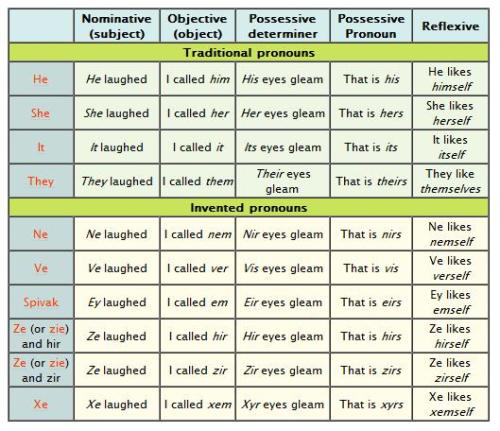

The report takes as its basis the assumption that everyone has a ‘gender identity’, despite the fact that the term cannot be defined without recourse to circular reasoning and reference to sexist stereotypes. Notably, campaigners are warned to “avoid excessive press coverage and exposure,” because the “general public is not well informed about trans issues, and therefore misinterpretation can arise.” But while it might not give the answers, it catalogues in meticulous detail the methods that non-governmental agencies should use to effect societal change. This 65-page document was a joint effort between Dentons, the global law firm, the Thomson Reuters Foundation, and the LGBTQI pressure group IGLYO. Perhaps clues lie in the ‘ Dentons document’ that was uncovered last year by Roll on Friday, a British website serving legal professionals. Something very odd is going on and it is unclear why. This is more than being ‘kind’: It is social engineering and its promoters include NGOs, large corporations and state broadcasters. We can only speculate how many children will choose something more interesting than ‘he’ or ‘she’. This way your friends who use neo-pronouns will know you’re a safe space to share with.” Maybe the most worrying aspect of the whole article is the invitation to every child reading it: “Perhaps you’d like to share your own pronouns as well when making a new friend, or normalise putting your pronouns on your own social media profiles. Because where there are labels, there are people to be labelled. Children constructing their cognition on these labels will think differently about society. But at 52 years old, I may be forgiven for oldthink. I may be trans but I have no secret knowledge that explains the purpose or need for these labels. If this means anything to anyone, please do let me know. They polished off their list with pronouns known as ‘Spivak’ (ey/em/eir). Without irony, the BBC introduced what they called “neo-pronouns,” such as: Why is the BBC doing this to our children? They move far beyond the familiar ‘he’ and ‘she’, or even ‘they’ – a pronoun that has long been used for someone whose sex may not be known. They cease to describe material reality, and instead label identities. This is a massive leap from how we used to use pronouns (and most adults probably still do). The message is revolutionary: Pronouns should not be chosen by the observer on the evidence of what they see, but imposed by the subject on the basis of how they claim to feel about themselves. With help from LGBT advocacy group Stonewall UK, they appealed to kindness, to the natural desire of children to feel that their friends are accepted, comfortable and included. But it’s unclear where their article on being “an ally to friends who’ve changed their pronouns” might fit into the curriculum. Worryingly, even the BBC – a state broadcaster – is involved, using its Bitesize platform that supports children with their schoolwork. Messages they receive may go further than changing the way they think they may establish ways of thinking in ways alien to their parents. Let's celebrate the diversity of all people who bleed! 💙🎨: #mythbusting #periodtruths #transisbeautiful /5s1416cZBw- Tampax US September 15, 2020īut at least women – adult human females – have prior knowledge to fall back on. Also a fact: Not all people with periods are women. The coordination is uncanny.Įarlier this month, Sands UK, a British charity that works with pregnant women who lose their unborn children, decided that “birthing parent” might be suitable language to use for the grieving mothers they support.įact: Not all women have periods. While the transgender lobby has shrieked their mantra, trans women are women, the group formerly known as women are having words ripped from them, even by their own support organisations. In recent years, gender has been quietly replacing sex in language and policy across the English-speaking world.

But we would be naïve to imagine that all change is passive when vested interests are keen to change the way we think. Unshackled by anything equivalent to the Académie Française, which regulates the French language, English develops in response to usage. Language is not only the medium of our speech, but the medium of our thoughts, so when people set out to change our language, we are right to be concerned. Why are charities, multinationals & broadcasters like the BBC so keen to push this agenda and brainwash our children? The social engineering around new terms to describe ourselves are baffling & unnecessary.


 0 kommentar(er)
0 kommentar(er)
